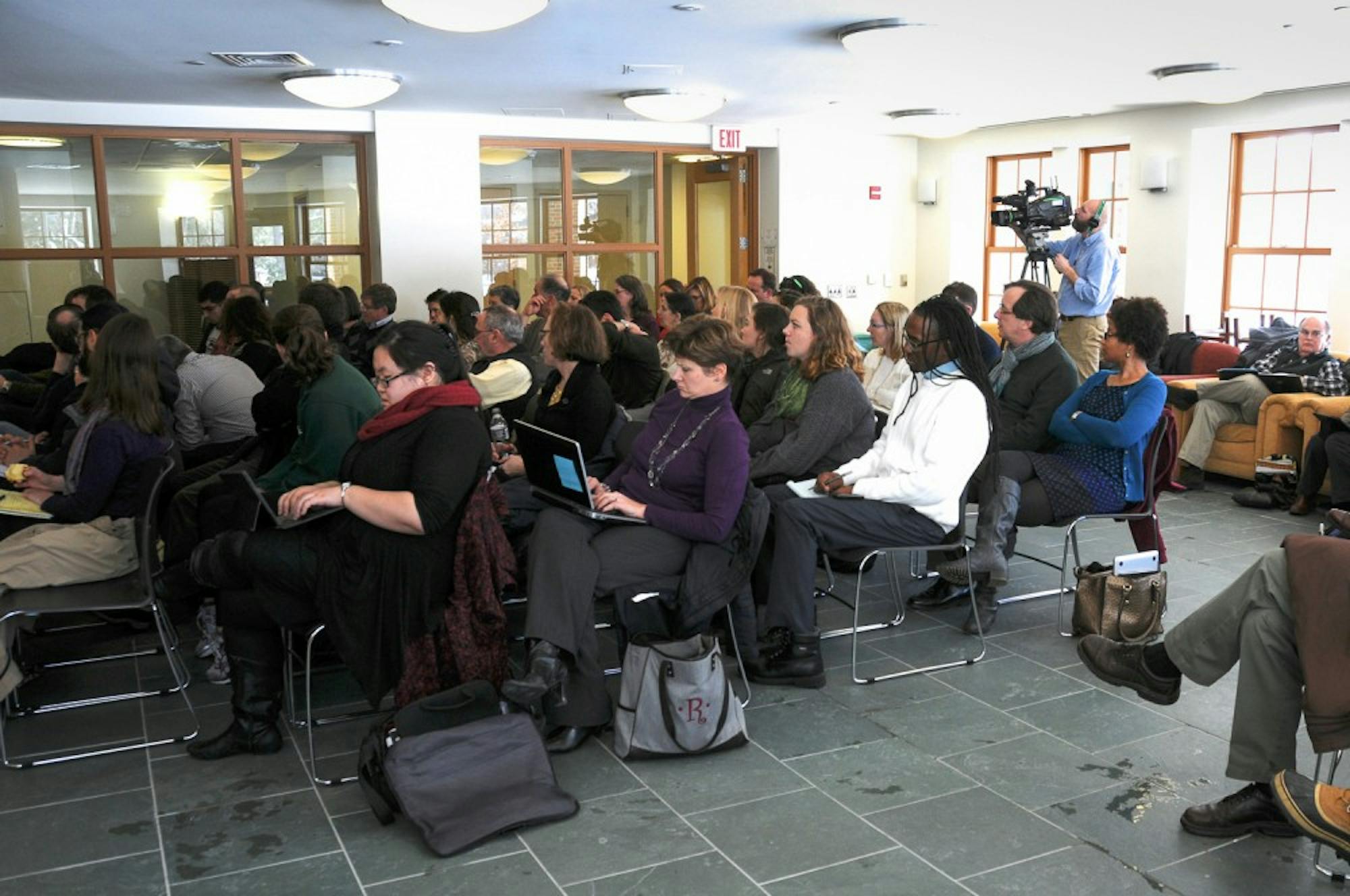Discussing issues ranging from a lack of shared cooking spaces to the need for more student-faculty interaction in residence halls, alumni, faculty and students gathered for the second set of Moving Dartmouth Forward sessions in Fahey Hall yesterday.
Director of residential education Mike Wooten facilitated a lively discussion, collecting feedback on three new housing initiatives: a global village community, an arts and innovation community and a design-your-own housing community program.
These residential options, which offer students with common interests opportunities to learn together outside the classroom, will be instituted by the office of residential life in the fall.
Wooten said that the initiatives match College President Phil Hanlon’s vision for residential life.
The global village community, which will be located in an existing physical plant, will enable students to explore global learning-themed subject matters under the common theme of global learning. The village will house the Dickey Center for International Understanding’s Great Issues Scholars program, the international residence program, currently located in McCulloch Hall, and students enrolled in various language programs.
Centralizing new and existing programs under the global village umbrella will hopefully encourage “cross-pollination,” Wooten said.
The arts and innovation community will center on the College’s Student Innovation Center and New Venture Incubator at 4 Currier Place, which is expected to be completed by the spring. The design-your-own option allows groups of students to design their own communities around a theme.
After briefly describing the initiatives, Wooten asked the crowd for input.
Students suggested creating a central space within each building for residents to socialize, while others shared positive experiences of living in affinity houses like the sustainable living center.
Faculty and staff proposed finding ways for graduate students to get involved in the future living learning communities.
Wooten also gauged student reactions to a potential residential life initiative to create “neighborhoods,” which he said would bolster continuity in students’ residential experiences and improve the campus community.
According to the tentative model, first-year students would move from their freshman clusters into a neighborhood, where they would remain for their next three years at Dartmouth, Wooten said. As of yet, ORL does not yet have a definite timeline for the project.
The neighborhood system will take longer to implement, Wooten said, as ORL hopes to renovate existing buildings on campus to ensure equity in housing quality. In addition, ORL will have to ensure that this planning aligns well with the College’s other projects, he said.
“We introduced the term neighborhood mainly because we believe that the order and the map of campus will change,” he said. “Cluster doesn’t have the sort of gravitas to it, but we all come from neighborhoods, and that means something to us.”
Alisa White ’17 said she attended the event because as an EcoRep, she has been interested connecting sustainability and community at Dartmouth. Different spaces on campus impact students in different ways, she said.
Drawing a binary between learning and social spaces is unwarranted, Wooten said.
“Learning and social interaction are all mashed up together in mysterious ways,” Wooten said. “Where we gather and hang out is indeed where we have our learning experiences. Learning doesn’t just happen in the classroom. That’s what we are trying to do – to rethink categories that we default to.”
Felicia Jia ’16 said she was satisfied with the discussion and noticed many recurrent themes in students’ opinions about campus housing options.
“When I initially heard of the living-learning communities, I thought that those were exactly what Dartmouth needed,” Jia said. “I used to go to a boarding school, and after coming to Dartmouth, I really missed having close relationships with faculty members outside the classroom.”
Jia said she hopes the session will help students and other community members clarify their grievances and desires regarding housing.
Wooten said attendee feedback will be incorporated into the office’s current planning process. Students are part of a working group that is spearheading these initiatives, he said.
Senior associate dean of the college Inge-Lise Ameer hosted the first session with Wooten, which took place from noon to 1 p.m. Wooten facilitated the second session, held later that evening.




